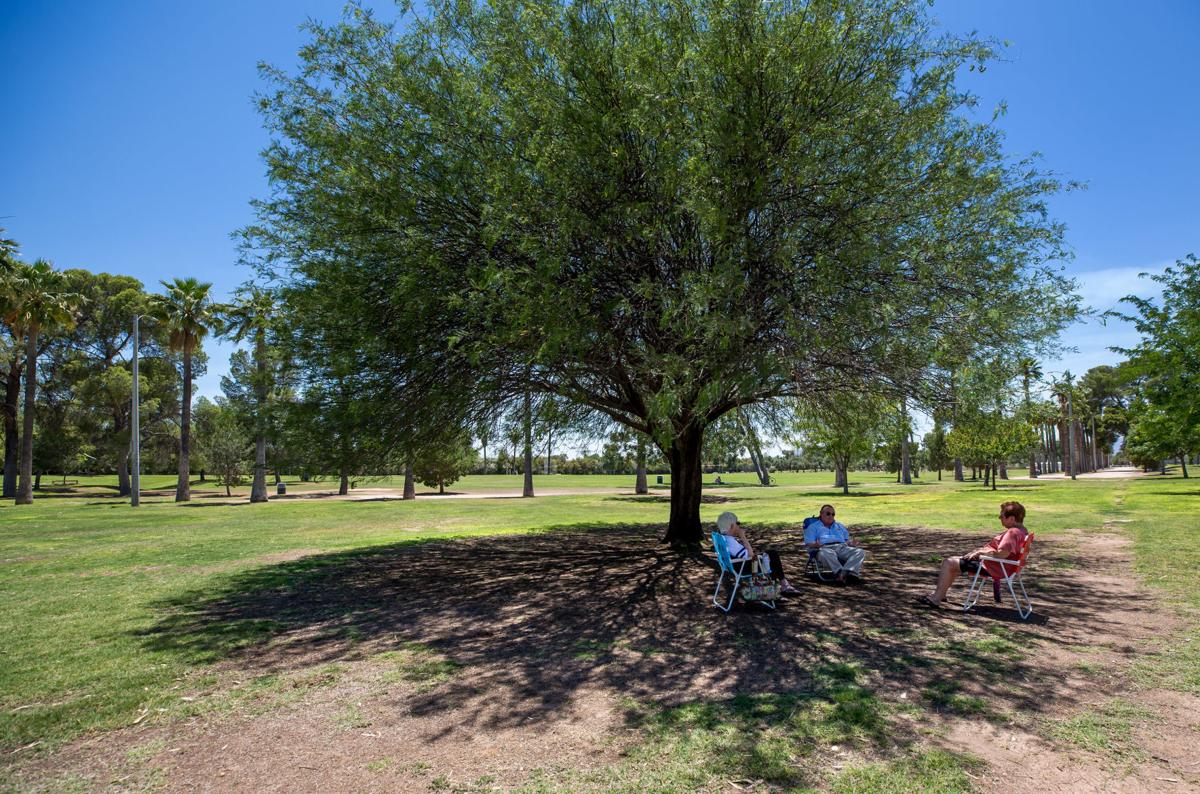The following column is the opinion and analysis of the writer:
These difficult times of COVID-19 are complicated even more by the extreme heat in Arizona as well as in other parts of our nation and the world. According to “Killer Heat in the United States,” by the Union of Concerned Scientists, “Temperatures around the world are increasing in response to rising heat trapping emissions.”
We are certainly aware of these conditions in our own Arizona communities.
Last year, the Arizona Department of Health Services officially reported 443 heat-caused and heat-related deaths across the state, the highest number in the last 10 years. More are unreported, especially among homeless or undocumented people.
The Arizona Chapter of Physicians for Social Responsibility, headquartered in Tucson, offers free neighborhood workshops on surviving a heat crisis, presented digitally. It also offers a “Citizen’s Guide for Readiness for Climate Extremes in the Desert Southwest” for workshop attendees and residents to learn about heat illness, understand the risk factors, assess readiness for heat emergencies, and prepare for potential loss of power in homes and other buildings.
Heat illness or death does not just occur in an emergency. It is a problem on every hot day for those who work outdoors, work or live in spaces without adequate air conditioning, or are homeless.
While many of us have the advantage of sheltering in place in air-conditioned homes or offices, others work in essential jobs, many outdoors in an increasingly hotter climate. We count on people to repair and maintain roads and sewage systems; telephone, gas and electric lines; and parks and neighborhoods. We also rely on these essential outdoor workers to deliver mail and packages, to grow and deliver our food, for construction work and much more.
As these workers face a hotter climate, there are no legally required worker protection standards in our city, state or nation to help keep them safe from potentially deadly heat exposure. Although ADHS has an excellent extreme heat warning system, good information on heat safety, recommendations for heat protection and tracking of heat deaths, there is no worker protection mandate in Arizona.
Arizona U.S. Rep. Raúl Grijalva has introduced H.R. 3668, a bill that would require the Occupational Safety and Health Administration to issue a heat-protection standard for the safety of workers. Several states, including Florida, Texas, Maryland and California, have already introduced or passed worker heat-protection bills and statutes. What about Arizona?
In June of 2019, Tucson’s mayor and City Council issued a proclamation for heat awareness and our need to be prepared and take precautions to mitigate the effects of extreme heat events. We must go the next mile and actually establish effective and enforceable heat-protection standards for all outdoor workers, people who live or work in facilities without adequate air conditioning, homeless people and others in our community who are vulnerable.
Finally, we all need to be prepared to be among the vulnerable to heat illness or death in the case of a regional and prolonged power outage during our extreme heat seasons.
As one of the hottest communities in the nation, we must solve this problem and be an example for others. We must not wait until a bill is passed in Washington, D.C., or for a heat-protection standard to be enacted by OSHA. The time is now to accelerate heat-protection planning and develop standards and policy at both the local and state levels.
The city of Tucson must work to rapidly develop heat-protection standards for those at risk, which can be all of us.





